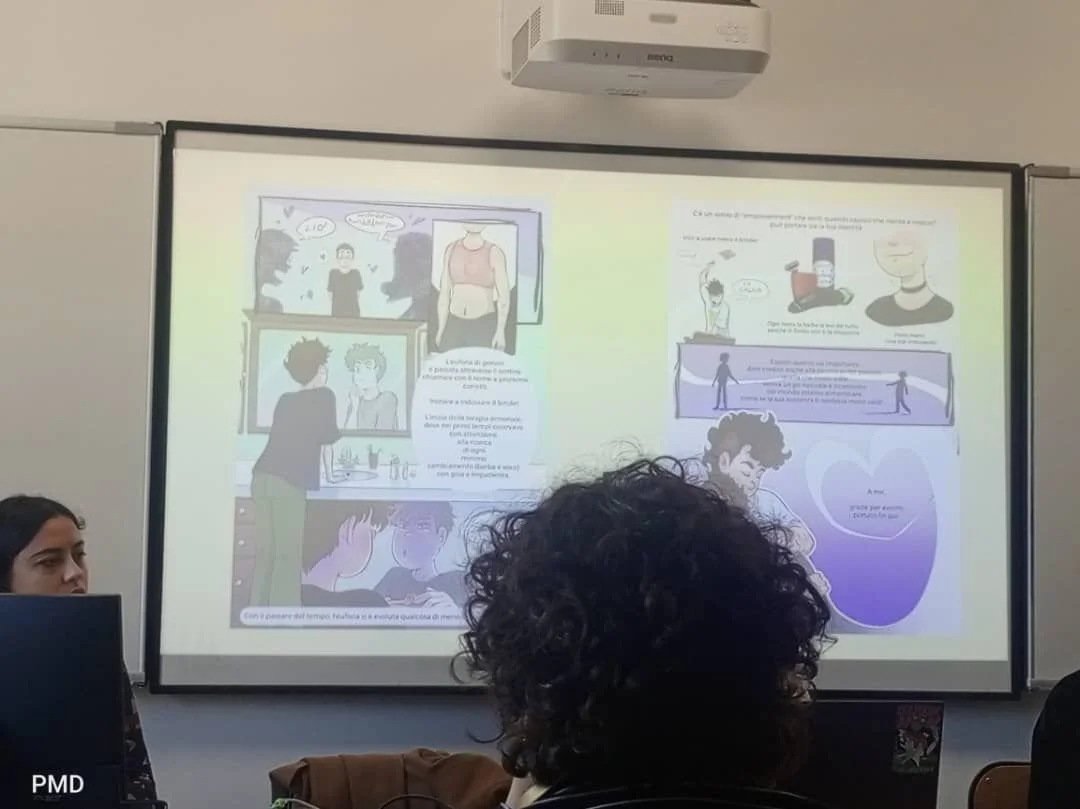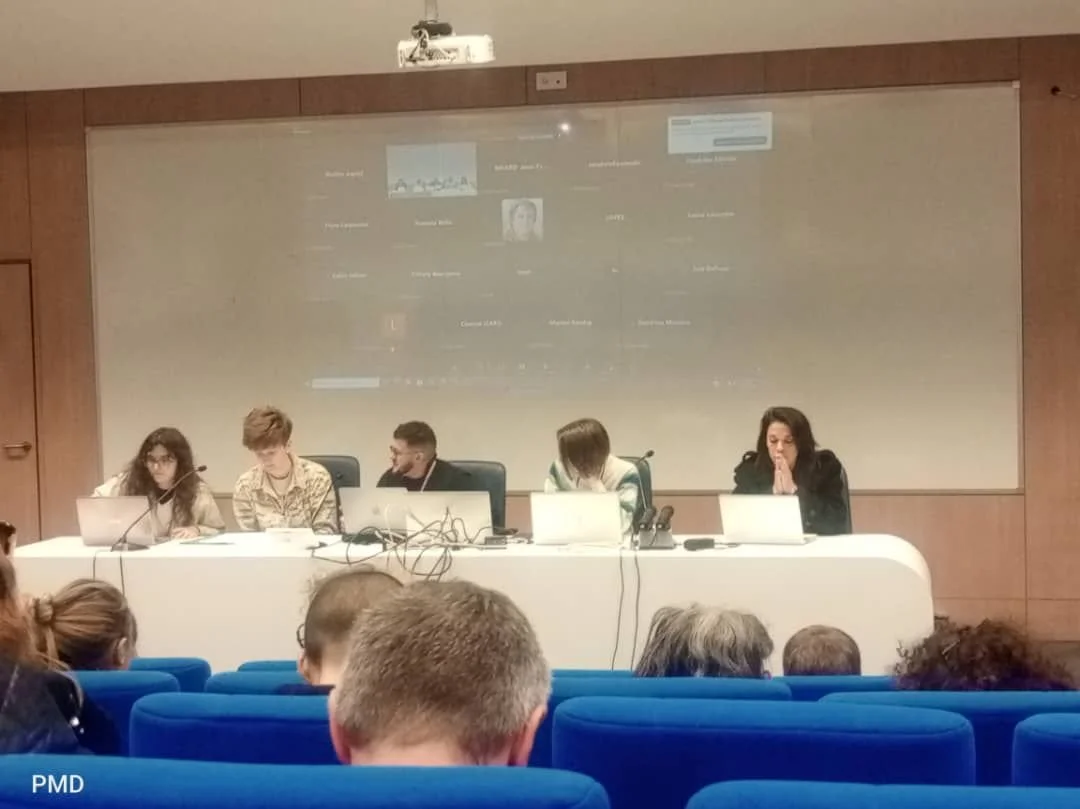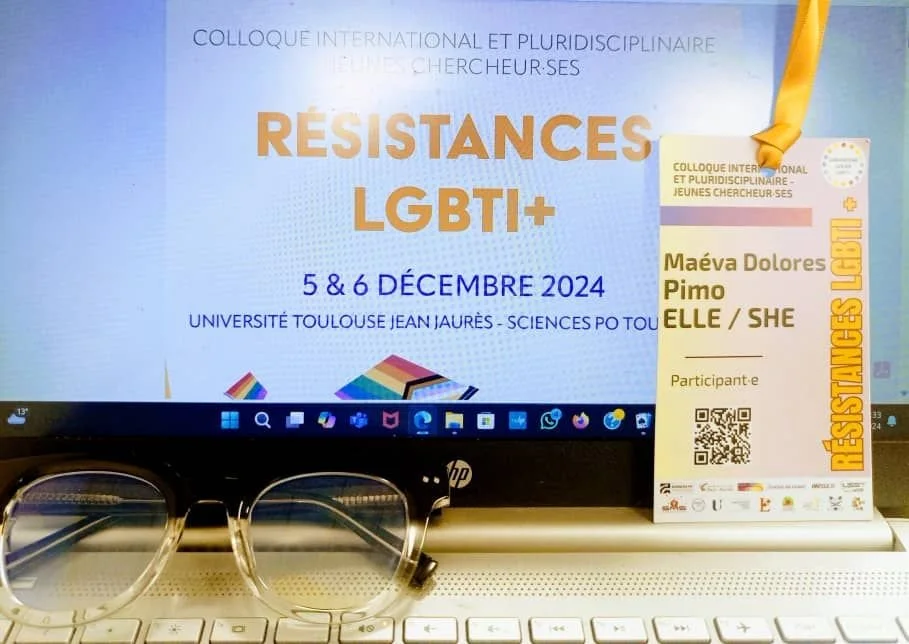Maéva Dolores Pimo at the International Conference for Young Researchers
On December 5th and 6th, our doctoral student Maéva Dolores Pimo participated in the ‘LGBTQI+ Resistances’ International Conference for Young Researchers, hosted by the Laboratoire Junior LGBTI at Jean Jaurès University and Sciences Po Toulouse. Supported by the European Research Council (ERC) project GLOCO, Maéva shared insights into queer vocabulary, writing, and literature, delving into how these elements serve as acts of resistance and identity reclamation for the queer community.
Queer Vocabulary, Writing, and Literature: Dynamic Expressions of Identity
Queer vocabulary is as expansive as it is diverse, reflecting both global connections and unique cultural nuances. Maeva’s presentation illuminated how language becomes a creative and expressive tool for self-representation, adapting fluidly to regional and community-specific contexts. From inventive punctuation (-, ., *) to the adoption of inclusive pronouns like ‘them’ in English, queer writing is evolving in powerful ways. These adaptations mirror varied cultural landscapes, enriching the ways in which language can affirm and celebrate queer identities.
Contrary to the notion that queer narratives are a recent phenomenon, the conference underscored that stories of queerness have existed for as long as storytelling itself. Queer literature spans centuries and genres, manifesting in comics, novels, music, and more. This rich tradition celebrates the enduring presence and creativity of queer voices throughout history.
Acts of Resistance: Reclaiming Identity
Vocabulary, literature, art, and other cultural expressions were presented as acts of resistance—powerful means of claiming and reaffirming identities within the queer community. By showcasing these elements, the conference highlighted the multifaceted ways in which queerness resists erasure and thrives as a vital force of self-empowerment.
A heartfelt thank you to the organisers and participants, including Yael Armangau, Chloé Chassagnac, Maric Martin Lorusso, Fiona Eyraud, and Cecilia Carotenuto, for creating a space for meaningful dialogue and exploration. Maeva’s participation reflects GLOCO’s commitment to fostering interdisciplinary research and amplifying diverse voices in global conversations on identity and resistance.




